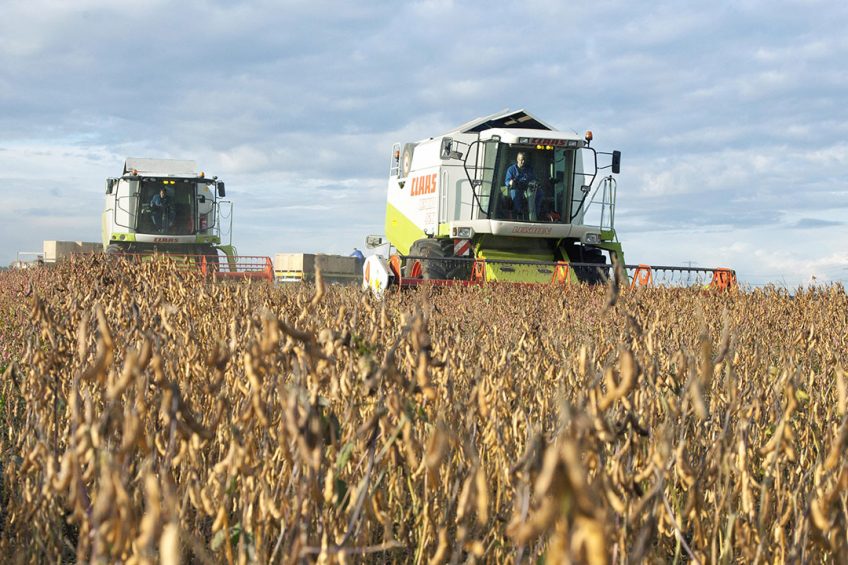Argentinian soybean farmers on strike

Soybean producers threaten to stop selling grains if government taxes are increased. This can severely affect Argentina’s animal production and feed availability and prices.
Argentinian farmers organisations started a 4-day strike on March 9th. The reason for which is the “retenciones” (retentions), a duty increase, for soybean imposed by the new government in the country. The organisations are likely to stop selling their products, which can directly affect animal production in Argentina.
The period of the protest matches with the 12th anniversary of the beginning of this conflict between farmers and Cristina Kirchner´s government. She was the president in 2008 and, currently, is the vice president.
The CRA (Argentinian Rural Confederation) issued a harsh warning to Casa Rosada, the house of the government. “Once again agricultural producers across the country are forced to take action to defend its dignity as farmers and workers”. Last week, groups of tractors were seen on routes towards Córdoba, as a sign of protests from agricultural producers over the rise in retentions. Dozens of agricultural machines drove to the nations capital to make visible the claim.

Case study: Stable outlook for Argentina’s poultry sector
2020 chicken meat production and consumption in Argentina is forecast to remain steady with a slight increase in exports. Find out more…
The governmental measure increased soybean duties from 30 to 33%. However, on the other hand, the proposal reviews cutting taxes to peas, beans, chickpeas and lentils (9% to 5%); peanuts (12% to 7%); wheat, (9% to 7%), and sunflower (12% to 7%). Furthermore, a part of the additional taxes would return as compensation for 3 out of 4 soy producers, if their production has not exceeded 1,000 tons in the previous campaign. According to official data, this benefit will reach 42,406 producers representing 74.2% of the total. The remaining 14,884 producers, with yields above 1,000 tons, will not receive any compensation.












